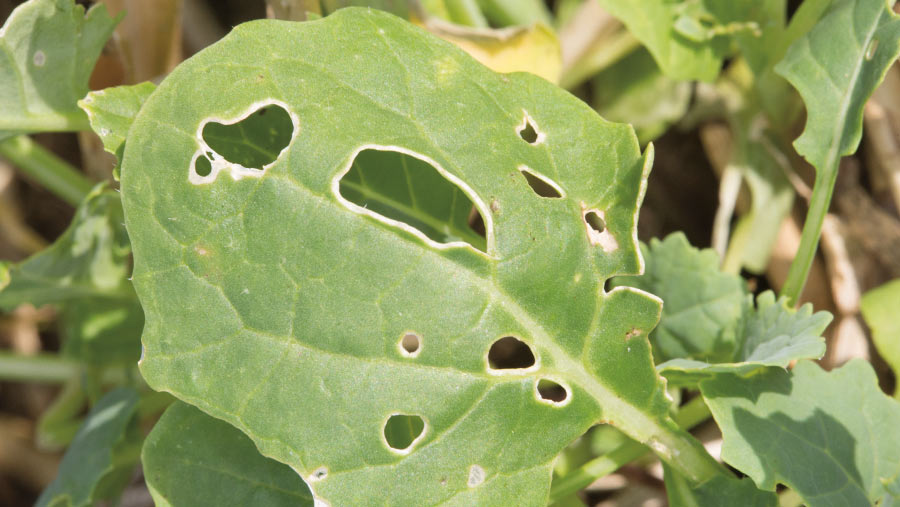Cereals 2020: OSR may see non-chemical control of flea beetles
 © Tim Scrivener
© Tim Scrivener Oilseed rape growers could get help to control cabbage stem flea beetles from unpalatable varieties and tasty “trap crops” to lure beetles away from rapeseed.
Scientists are looking to genetics and plant diversity to counter the lack of chemical control against flea beetles after neonicotinoid insecticides were banned and resistance is being seen to pyrethroids.
Rachel Wells, crop geneticist at the John Innes Centre, is involved in work looking at the least and most palatable rapeseed variety lines, especially at the cotyledon early-leaf stage.
“We have identified lines that are less palatable to adult cabbage stem flea beetles,” she told a non-chemical solutions webinar at Cereals LIVE 2020.
Dr Wells has also identified variety lines that have shown less flea beetle larval growth and greater survival rates of oilseed rape plants.
See also: Cereals 2020: Field-scale tests on flea beetle control to start
Trap crops
Looking at a different avenue to control is Samantha Cook, behavioural ecologist at Rothamsted Research, who is looking at trap crops to attract flea beetle. Her work is looking at turnip rape grown in border strips around oilseed rape to reduce the damage from adult flea beetles.
“The cabbage stem flea beetles preferred turnip rape over oilseed rape and this reduced the flea beetle damage to crops,” she said.
Dr Cook is also looking at companion crops of brassica mixes which showed “good promise” in distracting flea beetles.
She also said companion crops, together with flowering field margins, are a good way to encourage the enemies of flea beetles, such as ladybird, spiders, lacewings and parasitic wasps.
Meanwhile, Roma Gwynn, director of biopesticides group BioRationale, said more than 30% of new plant protection products looking for approval are now biopesticides.
Trial work in the north of England had showed little difference in growing winter wheat using chemical controls and biopesticides. She said biological technologies are realistic for growing wheat, although there is still likely to be a need for chemistry.
The trial work also looked at high and low nitrogen fertiliser levels on the wheat, and found that the biopesticides were more effective under a high nitrogen regime.

